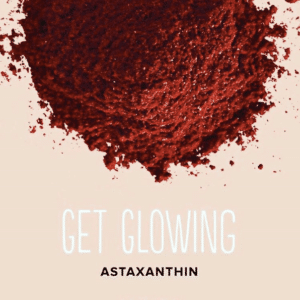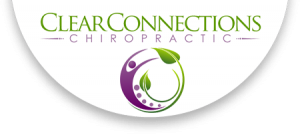Top Nutrients to Protect Your Skin From Summer Sun!
 Summer and sunshine-filled days are upon us and that calls for the use of sunscreen to protect your skin from summer sun! Unfortunately, most sunscreens contain toxic ingredients that are easily absorbed through your skin and can jeopardize your health.
Summer and sunshine-filled days are upon us and that calls for the use of sunscreen to protect your skin from summer sun! Unfortunately, most sunscreens contain toxic ingredients that are easily absorbed through your skin and can jeopardize your health.Astaxanthin — Most Potent Nature-Made Sunscreen
Astaxanthin, one of nature’s most potent antioxidants, has been shown to offer significant protection against UV radiation damage 
Astaxanthin is produced by the microalgae Haematococcus pluvialis when its water supply dries up, forcing it to protect itself from ultraviolet radiation. Astaxanthin is essentially the algae’s survival mechanism. It is this “radiation shield” that explains how astaxanthin can protect you from similar radiation, thereby helping prevent skin photo-aging and wrinkles.
For general skin health and protection against the sun, a daily dose of 4 mg is likely sufficient, although if you’re an outdoorsman or athlete who exercises outdoors on a regular basis, you may want to consider a dose between 8 mg and 12 mg/day, at which you’ll also start reaping benefits in exercise performance and recovery.
Vitamin D Lowers Skin Cancer Risk

Unfortunately, total sun avoidance is inadvisable, as it can actually increase your risk rather than lower it. In a nutshell, the vitamin D your body produces in response to UV-B radiation helps protect against melanoma.
Optimizing your vitamin D through sensible sun exposure can also help protect against many internal cancers, the death tolls of which are far greater than melanoma. Vitamin D is also crucial for the prevention of many chronic diseases, and has been shown to be an important criterion for longevity.
The key is to optimize your vitamin D level while avoiding sunburn, as sunburn is the factor that raises your risk of skin cancer (including squamous cell carcinoma, basal cell carcinoma and melanoma).
Vitamin E Plays Important Role in Allowing you to protect your skin from summer sun, but Choose Your Supplement With Care
Another vitamin that helps prevent sun-related skin damage is vitamin E, especially when combined with vitamin C. An article on Oregon State University’s Micro-nutrient Information Center website discusses the many functions of vitamin E in skin, noting that “vitamin E can absorb the energy from UV light. Thus, it plays important roles in photo-protection, preventing UV-induced free radical damage to skin.”
Food is your best source of vitamin E, since food contains a combination of the eight types of vitamin E. If you’re using a supplement, there are key considerations that need to be heeded. Synthetic vitamin E (alpha-tocopherol) is derived from petrochemicals and has known toxic effects.
Natural vitamin E includes a total of eight different compounds, and having a balance of all eight helps optimize its antioxidant functions. These compounds are divided into two groups of molecules as follows:
Tocopherols are considered the “true” vitamin E, and many claim it’s the only kind that has health benefits. Part of the problem with tocotrienols is that they simply haven’t received as much scientific attention.
Synthetic vitamin E supplements typically include only alpha-tocopherol, and research published in 2012 concluded that synthetic alpha tocopherols found in vitamin E supplements provided no discernible cancer protection while gamma and delta tocopherols found in foods do help prevent colon, lung, breast and prostate cancers. Bear in mind that a supplement will not actually tell you it’s synthetic, so you have to know what to look for on the label.
Synthetic alpha-tocopherol is typically listed with a “dl” (i.e., dl-alpha-tocopherol)
Non-synthetic or naturally-derived is typically listed with a “d” (d-alpha-tocopherol). Note that when vitamin E is stabilized by adding either succinic acid or acetic acid, the chemical name changes from tocopherol to tocopheryl (as in d-alpha-tocopheryl succinate, for example).
So, if you opt for a supplement, make sure you’re getting a well-balanced all-natural vitamin E supplement, not a synthetic one. Also look for a supplement that is free of soy, soybean oil derivatives and genetically engineered (GE) ingredients (some of the most common GE ingredients found in supplements are derivatives of corn, soy and cotton seed).
Green Tea Antioxidant Helps Prevent Genetic Damage in UV-Exposed Skin
To boost the benefits of green tea further, add a squirt of lemon juice to your cup. Research has demonstrated vitamin C significantly increases the amount of tea catechins available for your body to absorb. The addition of 30 mg of ascorbic acid (vitamin C) to 250 ml of tea boosted EGCG recovery to 56% to 76%, while normally less than 20% of green tea catechins remain post-digestion.
Healthy Skin and Natural Sun Protection Are Created from the Inside Out
 As you can see, there are many ways to protect your skin from the summer sun, thereby allowing you to get the benefits without adding much risk. As mentioned, the key to preventing skin damage and skin cancer is to avoid burning.
As you can see, there are many ways to protect your skin from the summer sun, thereby allowing you to get the benefits without adding much risk. As mentioned, the key to preventing skin damage and skin cancer is to avoid burning.
As soon as your skin starts turning the lightest shade of pink (which will be relative, depending on your base skin color), it’s time to get out of the sun or put on protective clothing. A wide-brimmed hat to protect your face is advisable at all times. A majority of your vitamin D production comes from exposing large areas of your body — not your face.
Remember…for longer sun exposure be sure to lather up with healthy mineral based sunscreens that will further help block harmful rays. Read your labels!! Choose products containing zinc oxide or titanium dioxide. Avoid ingredients like Oxybenzone, Octinoxate, Avobenzone, and Retinyl Palmitate to name a few…
